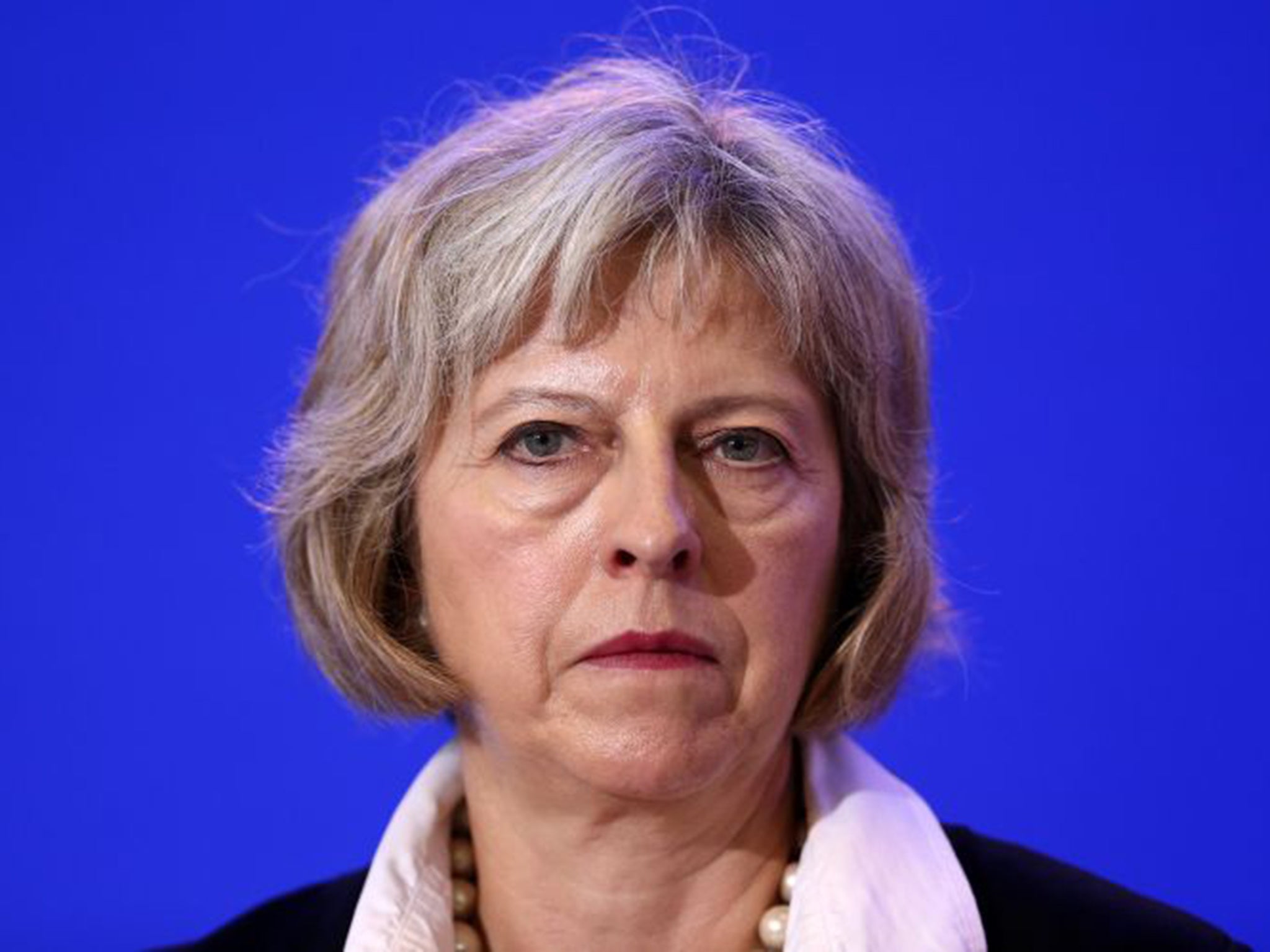Your support helps us to tell the story
From reproductive rights to climate change to Big Tech, The Independent is on the ground when the story is developing. Whether it's investigating the financials of Elon Musk's pro-Trump PAC or producing our latest documentary, 'The A Word', which shines a light on the American women fighting for reproductive rights, we know how important it is to parse out the facts from the messaging.
At such a critical moment in US history, we need reporters on the ground. Your donation allows us to keep sending journalists to speak to both sides of the story.
The Independent is trusted by Americans across the entire political spectrum. And unlike many other quality news outlets, we choose not to lock Americans out of our reporting and analysis with paywalls. We believe quality journalism should be available to everyone, paid for by those who can afford it.
Your support makes all the difference.Theresa May’s proposed surveillance and spying laws are “worse than scary”, the United Nations’ privacy chief has said.
Joseph Cannataci, the UN's special rapporteur on privacy, said the draft Investigatory Powers Bill heralded a “golden age of surveillance” unlike any that had come before.
The draft law, published by the Home Secretary earlier this month, would require internet companies to hand over any and all of their users’ communications as required by authorities.
Other provisions in the bill require the visited websites of all users to be stored on record for a year.
Technical experts have said that the proposed rules on intercepting communications could lead to some services like WhatsApp and iMessage to be de-facto banned because their secure encryption makes it impossible for their host companies to read users’ messages.
The Government says it is not making encryption illegal, only “strong” encryption that actually does its job of making communications uninterceptable.
It also claims judge-led reviews of ministerial decisions to use the powers would provide adequate oversight of the Government’s spying.
“The snoopers' charter in the UK is just a bit worse than scary, isn't it,” Mr Cannataci told the Internet Governance Forum in Brazil, in comments reported by Wired UK.
Mr Cannataci accused the British Government of an “orchestrated” propaganda campaign through its allies in the media to get the law passed with public consent.
“We're now at the stage where for the first time we have an absolute offensive,” he said.
“Just do a media analysis of the way the British establishment is trotting out news about the law and the need for the law and ask yourselves the question 'If this is not orchestrated then what is?'”
A previous attempt at passing powerful laws to allow authorities to intercept communications data was blocked by the Liberal Democrats in the previous 2010 coalition government.
Labour says the bill should have more safeguards and oversight but has not come out strongly against it.
The intervention from Mr Cannataci is not the first time the Government has provoked the ire of the UK.
The international organisation is reportedly launching an investigation into human rights violations in the disability benefits system, and has previously criticised the UK's 'xenophobic' approach to migration and refugee policy.

Join our commenting forum
Join thought-provoking conversations, follow other Independent readers and see their replies
Comments